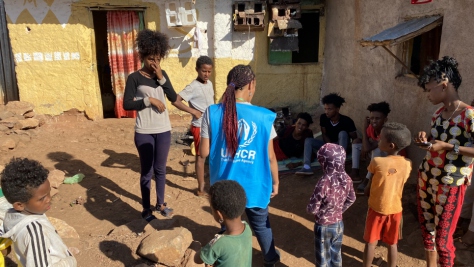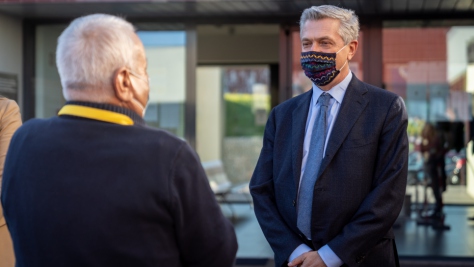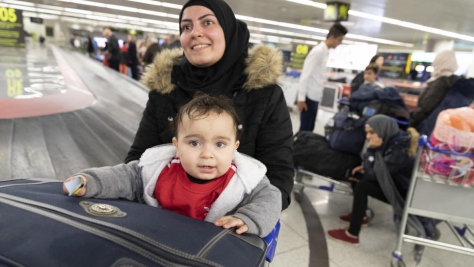Return of 2,400 Somali refugees leads to closing of third camp in Ethiopia
The voluntary return of more than 2,400 Somali refugees last week brings to more than 50,000 the number of voluntary repatriations last year and leads to the closing of a third refugee camp in Ethiopia.

ADDIS ABABA, Ethiopia, Jan. 2 (UNHCR) - The repatriation of thousands of Somali refugees from Ethiopia has continued at a steady pace, reflecting a more stable situation in parts of the east African country and leading to the closing of three of eight refugee camps.
Two convoys last week repatriated 2,412 people from Ethiopia's Daror camp to north-west Somalia, bringing the total number of refugees who returned home in 2001 to 50,216. The latest returnees received a nine-month food ration, plastic sheeting and blankets to help them restart their lives.
The Daror complex, which includes health clinics, schools, water systems and generators, and which once hosted 50,000 refugees, will be handed over by UNHCR to the local community.
Earlier last year, Teferiber and Dawarnaji camps were also closed.
Another estimated 67,000 Somalis who fled following the outbreak of widespread civil war a decade ago remain in five other camps in Ethiopia. More than half are expected to return home by June, but some 30,000 others from southern Somalia cannot be repatriated because the security situation in that part of the country remains unstable.
Related news and stories
Thousands of newly arrived Somali refugees in Ethiopia relocated to new settlement
Samira's Story
Drought brings life-threatening food shortages for refugees in Ethiopia
100,000 new Somali refugees arrive in Ethiopia in the past month, UN and partners are calling for urgent funding
UNHCR teams and partners rush assistance to some 100,000 newly arrived Somali refugees in hard-to-reach area of Ethiopia
As the Horn of Africa drought enters a sixth failed rainy season, UNHCR calls for urgent assistance
-

Q&A: 'Including refugees in the vaccine rollout is key to ending the pandemic'
14 Jan 2021 Mike Woodman of UNHCR's Public Health Section explains how the organization is working to ensure millions of forcibly displaced people worldwide are protected from the COVID-19 virus. -

Statement attributable to the UN High Commissioner for Refugees Filippo Grandi on the situation of Eritrean refugees in Ethiopia's Tigray region
14 Jan 2021 -

Refugees receive COVID-19 vaccinations in Jordan
14 Jan 2021 -

Iraqi couple among world's first refugees to get COVID-19 jab
14 Jan 2021 After receiving inoculation as part of Jordan's national vaccination plan, Iraqi refugee Raia hopes life will soon return to normal and other refugees will follow her lead. -

The High Commissioner
-

Hosts offer vital refuge to families fleeing DRC violence
13 Jan 2021 Solidarity shown by local Congolese communities has been critical in the response to mass forced displacement, but funding cuts threaten UNHCR's ability to offer support. -

UNHCR's Grandi concludes visit to Lisbon, commends Portugal's longstanding commitment to refugee protection as the country takes over the EU Presidency
13 Jan 2021 -

UNHCR calls for EU to ensure a new chapter for refugee protection
12 Jan 2021 -

Evaluation of UNHCR's Response to the L3 South Sudan Refugee Crisis In Uganda and Ethiopia
8 Jan 2021 Evaluation of UNHCR, the UN Refugee Agency's Response to the L3 South Sudan Refugee Crisis In Uganda and Ethiopia
